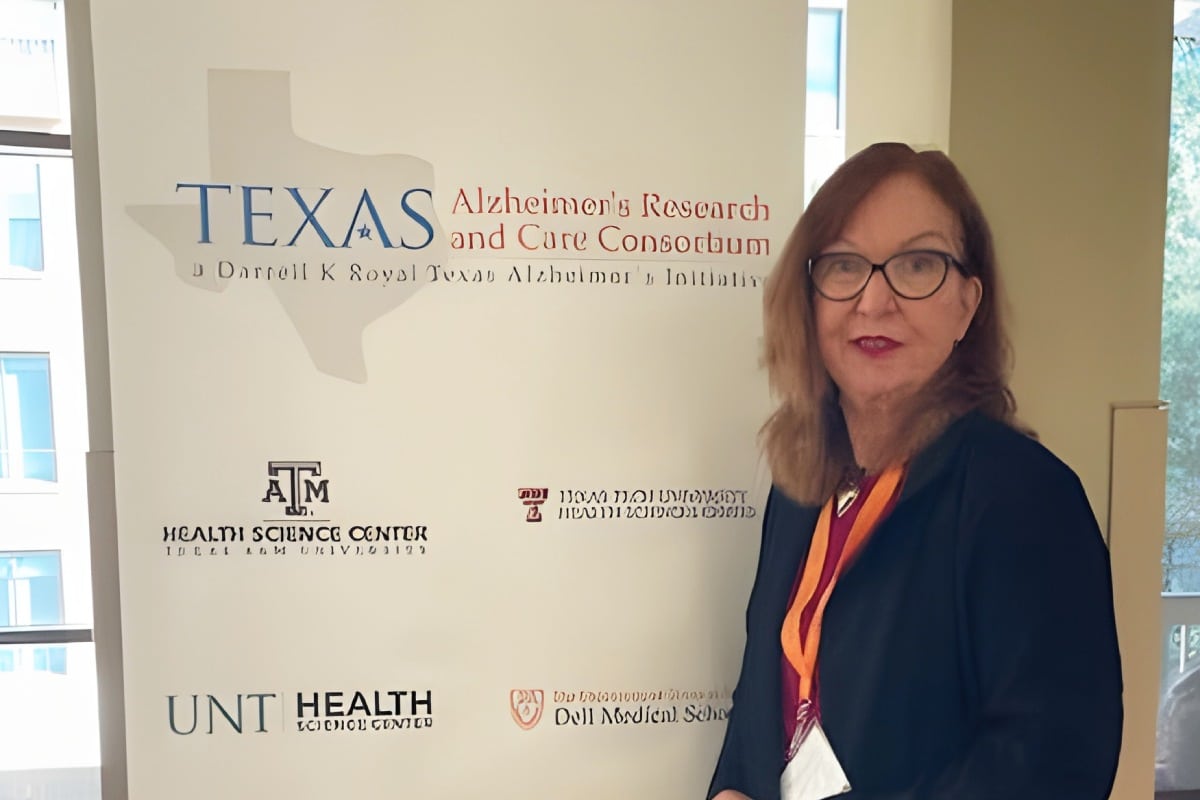Alzheimer’s affects millions of families across the country, making research and innovation in senior care more important than ever. The Texas Alzheimer’s Research and Care Consortium (TARCC) plays a crucial role in advancing Alzheimer’s research and providing resources for those impacted by cognitive decline.
Pegasus Senior Living’s Senior Vice President of Health and Wellness, Dr. Sandra Petersen, recently participated in this year’s TARCC event, sharing her expertise on neuroplasticity and dementia care.
Her research forms the foundation of the Connections memory care program, which is used in Pegasus communities to support individuals living with Alzheimer’s and other forms of dementia.
Continue reading to learn more about TARCC, Dr. Petersen’s contributions, and how Pegasus Senior Living is making a difference in memory care.

What Is the Texas Alzheimer’s Research and Care Consortium?
The Texas Alzheimer’s Research and Care Consortium (TARCC) is a collaborative research effort dedicated to improving the diagnosis, treatment, and prevention of Alzheimer’s.
Established by the State of Texas in 1999, TARCC brings together leading research institutions, including:
- Baylor College of Medicine
- Texas Tech University Health Sciences Center
- University of North Texas Health Science Center
- University of Texas Southwestern Medical Center
- University of Texas at Tyler
TARCC supports Alzheimer’s research through its Investigator Grant Program, which funds studies focused on early diagnosis, treatment development, and understanding the biological mechanisms of the disease. This initiative is part of the Darrell K Royal Texas Alzheimer’s Initiative, named in honor of the legendary football coach who battled Alzheimer’s.
The research and care consortium aims to advance Alzheimer’s treatment through clinical trials, innovative therapies, and collaboration among Texas’ top medical institutions.
Dr. Sandra Petersen’s Contributions to Alzheimer’s Research
Dr. Sandra Petersen was invited to present her research at TARCC, marking the first year of the University of Texas at Tyler’s participation in the consortium. Her work focuses on using neuroplasticity to address the behavioral and psychological symptoms of dementia.
Neuroplasticity is the brain’s ability to adapt and form new connections. Dr. Petersen’s research explores how cognitive stimulation, movement, and learning can improve the well-being of people with Alzheimer’s.
Founded by Dr. Petersen, the Connections program follows a structured approach to dementia care, incorporating:
- Cognitive exercises that encourage engagement and brain activity
- Physical movement to support motor function and overall health
- Social learning through group activities that strengthen memory retention
Her work has been recognized by experts in dementia research and continues to shape how memory care is provided across Pegasus communities. Currently, Dr. Petersen is launching the 2025 Brain Health Initiative in communities nationwide.
The Importance of Research on Alzheimer’s
Alzheimer’s research is critical in the fight against cognitive decline. The National Institute on Aging and the World Health Organization emphasize the need for ongoing studies to develop new treatments and improve early diagnosis.
Key areas of Alzheimer’s research include:
- Clinical trials: Testing new therapies for slowing or reversing cognitive decline
- FDA-approved treatments: Evaluating medications for effectiveness and side effects
- Mild cognitive impairment (MCI) research: Identifying early Alzheimer’s symptoms
- Immune system studies: Exploring links between inflammation and neurodegenerative diseases
TARCC and other research institutions work to advance Alzheimer’s research and care, ensuring that families have access to the latest medical innovations.
Pegasus Senior Living’s Commitment to Alzheimer’s Care
At Pegasus Senior Living, we apply the latest research on Alzheimer’s to create meaningful care programs. The Connections memory care program integrates best practices from neuroscience, geriatric nursing, and dementia research.
Our memory care communities provide:
- Personalized support tailored to each resident’s cognitive abilities
- Engaging activities that promote socialization and brain health
- Secure environments designed for comfort
By participating in research and care consortium events like TARCC, Pegasus Senior Living remains at the forefront of memory care innovation.
Learn More About Memory Care Near You
Alzheimer’s research is constantly evolving, and Pegasus Senior Living is committed to bringing the latest advancements into our memory care communities. If you are looking for compassionate, research-backed dementia care, contact a community today to learn more about the Connections program.
